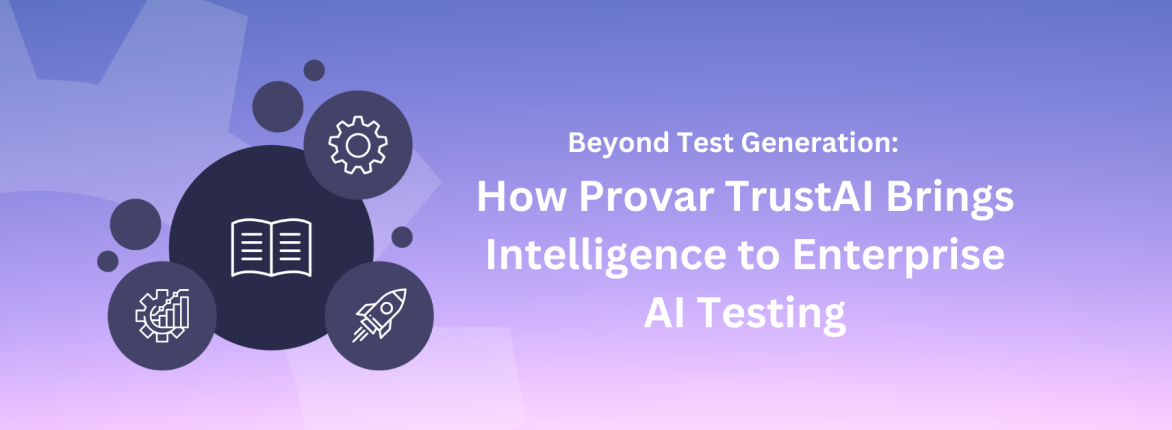Enterprise organizations rely on vast, interconnected systems to keep business moving. Salesforce often sits at the center of these operations, connected to powerful ERP platforms like SAP, Oracle, NetSuite, and Workday. Together, these systems manage everything from customer data and inventory to revenue recognition and compliance.
But with complexity comes risk. Each platform updates on its own schedule, and even a small misalignment can disrupt business-critical workflows. Without enterprise-ready automation, testing across these integrations becomes a constant bottleneck. Provar helps technology and commerce teams achieve scalable, consistent quality by automating ERP system testing and Salesforce test automation end-to-end.
In today’s blog, we’re examining the challenges of enterprise tech stack QA, how Provar’s powerful Salesforce test automation can help teams in commerce and tech achieve quality at scale. Keep reading to learn more!
The Complexity of Modern Enterprise Tech Stacks
Today’s enterprise tech stacks manage data that spans departments and systems — customer interactions in Salesforce, financial transactions in ERP, and supply chain updates across both. Salesforce issues three major releases per year, while ERP vendors push patches and upgrades independently.
These asynchronous update cycles can cause data sync issues or workflow breaks if tests aren’t automated and reliable. When an opportunity in Salesforce should trigger an invoice in SAP or a fulfillment request in NetSuite, every system in the chain must communicate flawlessly.
Provar’s ERP system integration testing automation validates these connections continuously, ensuring quality keeps pace with innovation. By automating these cross-platform validations, organizations can bolster both operational reliability and data integrity across their tech ecosystems.
Challenges with Manual Testing Across ERP and Salesforce
For many organizations in commerce and tech, manual testing once may have sufficed. But manual testing no longer fits the speed and complexity of modern enterprise tech stack QA. Every integration point — from quote-to-cash and order management to financial reporting and compliance — demands accurate, repeatable validation. Performing these tests by hand introduces risk and slows delivery.
Documentation and traceability can also fall short. When testers track results manually, audit trails are incomplete, and verifying compliance becomes time-consuming. As teams scale, maintaining test consistency across multiple releases, complex environments, and global teams quickly becomes unmanageable.
Provar’s low-code Salesforce automation testing platform solves these challenges by increasing coverage without adding headcount. Experienced QA teams and business users alike can automate validations across Salesforce and ERP workflows, reducing errors while preserving speed and flexibility.
How Provar Automates ERP + Salesforce Testing?
Provar provides the connective tissue for end-to-end ERP Salesforce integration testing. Its Salesforce automation framework validates transactions as they move among systems, confirming that data flows correctly across platforms and business functions.
Automated regression testing reduces release cycles from days to hours, giving teams confidence in each deployment. Provar also aligns seamlessly with CI/CD pipelines, keeping enterprise DevOps and QA efforts synchronized.
As more organizations migrate ERP systems to the cloud, Provar’s scalable Salesforce test automation ensures consistent quality across hybrid and cloud environments. Whether running tests in Salesforce, Workday, or SAP, teams gain the assurance that their integrated workflows perform exactly as expected.
Scaling Quality with Enterprise Test Automation
Sustaining quality at enterprise scale requires visibility, adaptability, and speed. Provar delivers all three. Centralized, user-friendly dashboards and reporting provide complete transparency across platforms, helping QA and development teams collaborate effectively.
As Salesforce metadata evolves or ERP configurations shift, Provar’s metadata-driven engine adapts automatically. This reduces the maintenance burden that often slows large organizations, keeping tests stable even as systems change. The result is continuous quality assurance that scales with business growth, not against it.
By embedding test automation into the development lifecycle, enterprises eliminate silos between QA and operations, accelerate delivery, and improve confidence in every release.
The Business Value of Automated Testing in Tech Stacks
Salesforce automation testing isn’t just a technical improvement — it’s a strategic advantage. Faster time-to-market, lower defect leakage, and reduced production risk translate directly into better business performance. Salesforce and ERP system testing automation also strengthen resilience across commerce and operations, protecting customer trust and revenue flow.
With ERP system testing automation, quality assurance transforms from a series of safeguards to a catalyst for innovation. By streamlining validation across complex enterprise stacks, organizations can invest more time in optimizing products and customer experiences rather than troubleshooting integration failures.
Conclusion
In today’s modern marketplace, enterprise organizations depend on tightly integrated systems to operate efficiently and effectively. Ensuring quality across Salesforce and ERP platforms requires testing that’s as scalable and adaptable as the systems themselves.
Provar empowers organizations with Salesforce-native, ERP-aware automation to support reliable, secure, and continuous delivery. With Provar, enterprise teams can unify quality assurance across their tech stack — accelerating innovation while maintaining the confidence that every integration works exactly as intended.
Ready to learn more about how Provar can help your organization achieve quality at scale? Contact our team to schedule a demo!










